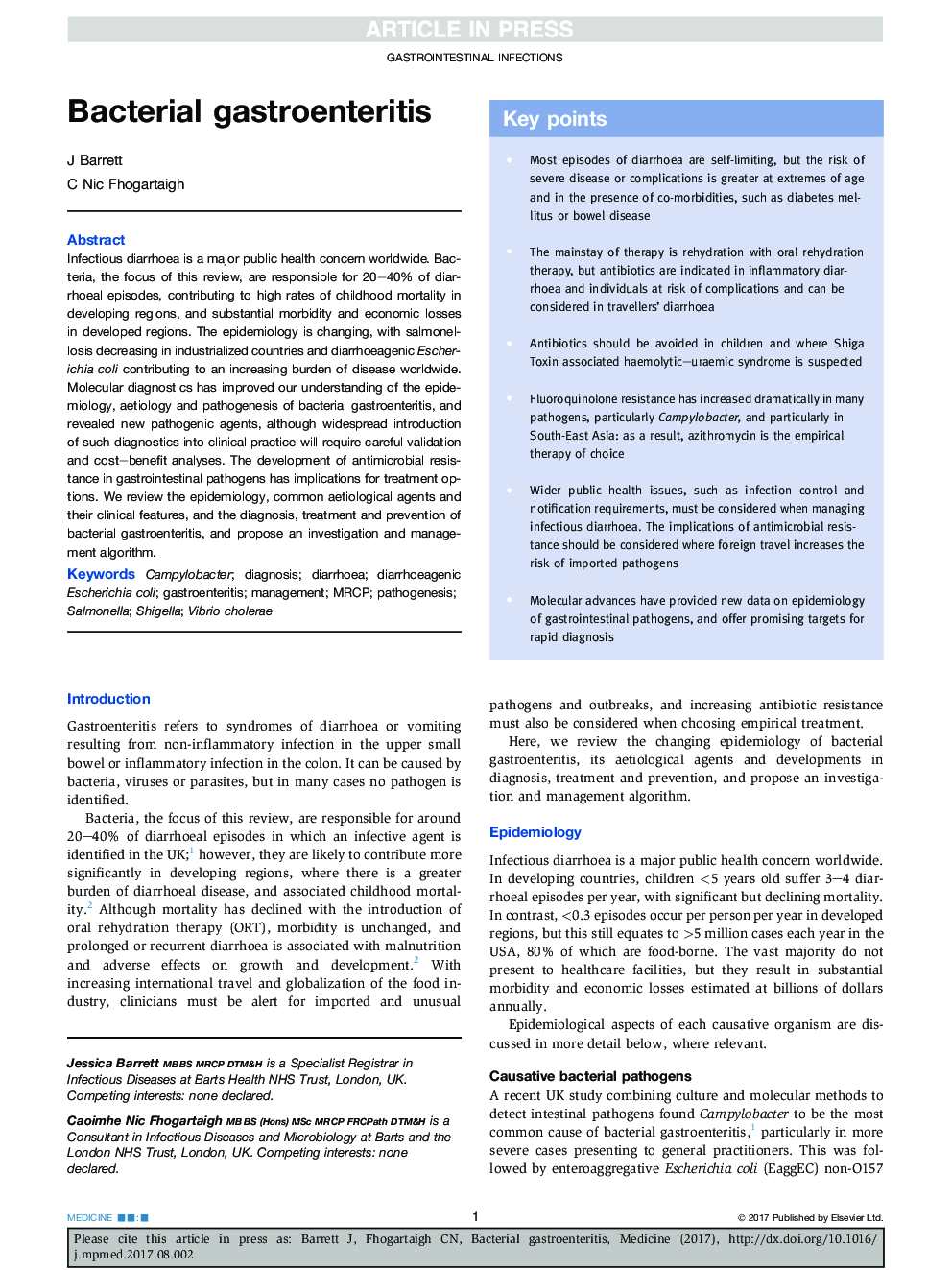| Article ID | Journal | Published Year | Pages | File Type |
|---|---|---|---|---|
| 8764165 | Medicine | 2017 | 7 Pages |
Abstract
Infectious diarrhoea is a major public health concern worldwide. Bacteria, the focus of this review, are responsible for 20-40% of diarrhoeal episodes, contributing to high rates of childhood mortality in developing regions, and substantial morbidity and economic losses in developed regions. The epidemiology is changing, with salmonellosis decreasing in industrialized countries and diarrhoeagenic Escherichia coli contributing to an increasing burden of disease worldwide. Molecular diagnostics has improved our understanding of the epidemiology, aetiology and pathogenesis of bacterial gastroenteritis, and revealed new pathogenic agents, although widespread introduction of such diagnostics into clinical practice will require careful validation and cost-benefit analyses. The development of antimicrobial resistance in gastrointestinal pathogens has implications for treatment options. We review the epidemiology, common aetiological agents and their clinical features, and the diagnosis, treatment and prevention of bacterial gastroenteritis, and propose an investigation and management algorithm.
Keywords
Related Topics
Health Sciences
Medicine and Dentistry
Medicine and Dentistry (General)
Authors
J. Barrett, C. Nic Fhogartaigh,
